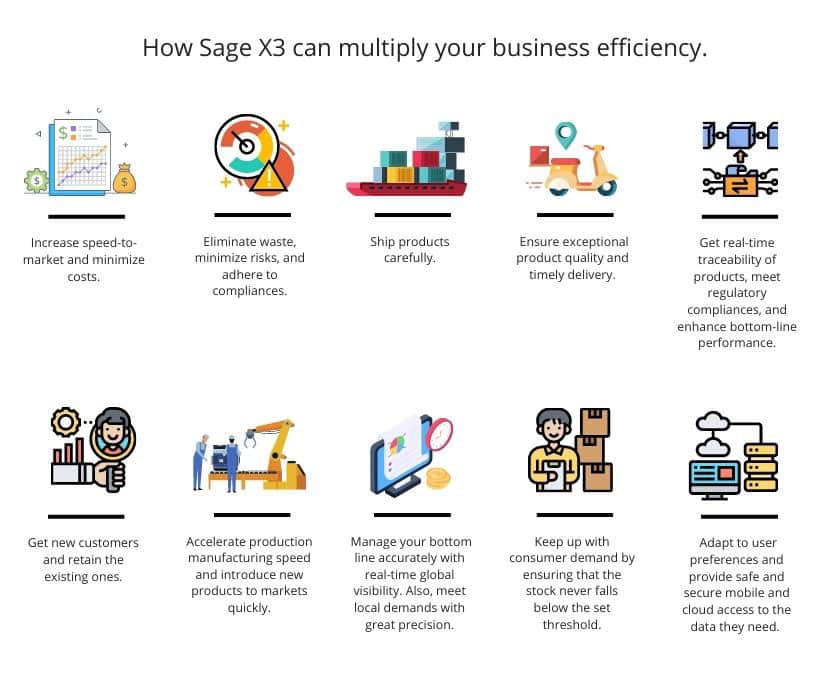We all live in a time when environmental concerns are at their highest. All the world leaders, countries and social media channels discuss the drastic effects of harming the environment and depleting its resources. Even industries must contribute their support to saving the environment. 67% of the organisations have given the responsibility to the supply chain leaders to follow the defined environmental and social sustainability KPIs. Now more companies are joining hands to protect the environment by following specific standards planned by them and by adhering to environmental regulations.
What is a Supply Chain?
The Supply chain process is the significant operation of an organisation. The supply chain function includes sourcing raw materials to deliver the finished product. Supply chain management is planning, purchasing, manufacturing, testing, inventory and distribution.
The need to improve the supply chain process was majorly realised when the pandemic covid 19 hit. During that phase, companies understood how the supply chain process could impact consumers globally and that their current supply chain strategies were outdated. Of course, few measures were being planned before the pandemic, but the severe decisions were in full swing after the pandemic.
Now the most trending concept is adapting to the new normal for businesses and everyone to alter to a different structure.
What is a Sustainable Supply Chain?
A sustainable supply chain is crucial to protecting the environment. It can be referred to as a company’s efforts to conduct supply chain operations without harming the environment or depleting its resources. Furthermore, a sustainable supply chain process ensures that their product is not risking the environment’s survival.
Currently, all businesses must put these environmental ethics in the front and consider it a priority to bring balance. Most top companies have started laying out benchmarks to run their business without negatively impacting the environment.
A supply chain process begins with the procurement of raw materials to the delivery of the finished product to the customer. Learn more about the step-by-step supply chain process below.
- Planning the manufacturing process and managing inventory.
- Purchasing raw materials from the vendor.
- Manufacturing the product.
- Assembling the manufactured product and testing its quality.
- Packaging the product and holding it in inventory for shipment.
- Transporting the product to the customer or retailer, or wholesaler.
- Finally, providing customer support for the returned product.
What is sustainable supply chain management?
Sustainable supply chain management is the process of conducting the supply chain process without disrupting the environment or depleting its resources. It focuses more on issues like climate change, environmental impact, water security, human rights, corruption, and fair labour practices. A traditional supply chain process focuses on flexibility, agility and reliability of the supply chain.
Elements of a Sustainable Supply Chain
A sustainable supply chain is a holistic term for three crucial elements:
- Green supply chain
- Transparent supply chain
- Circular supply chain
What is a Green Supply Chain?
A green supply chain process embraces the environmental principles and ethics in the supply chain management system. The booming of e-commerce platforms has led to the overflow of all types of products. So the competition among businesses has increased dramatically. Plus, more customers are currently searching for greener and more eco-friendly options.
The green supply chain process includes designing a product, sourcing raw materials, manufacturing, shipment and distribution. As they improve their supply chain process, businesses should also focus on integrating with environmental conditions. In that way, a balance can be maintained.
What is a Transparent Supply Chain?
A transparent supply chain refers to the company’s openness to disclose end-to-end information about its entire supply chain process. Plus, it’s the ability to disclose information about the origin of goods.
Many businesses have begun investing their time to ethically abide by environmental protection rules to balance business and the environment. But in reality, it was not that easy to execute a safe process protecting the environment. But thanks to digitalization and technology, it is easy to access end-to-end transparency of the whole supply chain process.
Technology such as RFID sensors and blockchain help supply chain managers acquire accurate records of the entire supply chain process.
What is a Circular Supply Chain?
In this type of supply chain sustainability, a product is disassembled and brought back to its raw material form. It is later remade and sold again to the customers. This supply chain is environmentally friendly and abides by all regulatory standards. Recycling is gaining popularity because of environmental issues. Plastics are recycled and reused again. Some recycled plastics are used in 3D printing.
A survey says that 70% of supply chain leaders wish to invest in a circular supply chain.
Examples of Supply Chain Sustainability
Upcycled products are popularly sold on social media channels. The best example to give for supply chain sustainability is the apparel industry. Some of the brands repair used clothes and resell them as upcycled products.
Benefits of supply chain sustainability
Countries across the world are concerned about climate change and environmental issues. Each year they take measures to make our planet greener. Businesses are also affected by climate change. Natural calamities disrupt their everyday operations. Consequently, even they began taking steps to save the planet. Let’s look at some of the supply chain sustainability.
Reduced costs
Digitalization was a big boon for all businesses. A study revealed a drop of 7% cost in supply chain operations because of digitalisation. It is crucial at this time to invest in green supply chain processes. Many experts believed that it would reduce costs.
Branding
Now consumers are keener on knowing where their products are coming from, so they are ready to pay extra 2%-10%. This trend was given more focus after the pandemic covid 19 hit.
Corporate culture
Times have changed, and millennials seek to work in a workplace with a higher purpose that benefits them. They look for companies with good corporate culture and meaningful core values.
Reducing risk
Supply chain transparency is essential to reduce risks and save a brand’s reputation. Suppose, unexpectedly, a dangerous product lands on the market. And obviously, the business owner has to pay hefty fees to save the brand’s reputation. Avoid all that by making the supply chain product transparent. All dishonest supply chain leaders and manufacturers will be caught.
Compliance
India is a developing and one of the most populated countries. It is complex to achieve sustainability sooner, but governments are trying their best to achieve sustainability by 2023, as laid out by the UN. The clean water for all scheme is already implemented in many parts of the country. Other regulations include the disposal of chemical waste, tracing pharmaceuticals and evading conflict minerals.
How to improve Supply Chain sustainability?
- First, form a team and plan the entire supply chain process.
- Identify the risks and dangers involved and try to find a solution.
- Set smart goals to get a sustainable supply chain to action sooner.
- Make clear objectives to establish green supply chain sustainability.
- Make the entire supply chain process transparent.
- Businesses should assess challenges and opportunities.
- Multi-tier collaboration with the supplier to get a 360-degree view of the supply chain process.
- Keep the above points at the centre and optimise your supply chain process.
Trends of Supply Chain sustainability
Two trends that will impact supply chain sustainability are the circular economy and data-driven supply chains.
In the circular economy trend, the products are recycled or upcycled for the consumers to reuse again. It is the most sustainable method and will have lighter environmental effects.
In data-driven supply chains, IoT(Internet of things) and equipment sensors are used prominently in data-driven supply chains. Data is extracted using these two technologies. Cloud-based supply chain execution gives detailed analytics to take valuable decisions.
Wrapping up, Supply chain sustainability is a hot topic currently. We talk about it on social media platforms more often. In order to have a safe and greener planet in the future, we must take steps today to control carbon emissions and save our environment. Companies should implement ethical measures to contribute to green supply chain management. Together we can make this planet a safe haven for everyone.
Some technologies essentially help in this green program, such as artificial intelligence(AI), machine learning, additive manufacturing, robotics, sensors, IoT(Internet of things), blockchain and ERP (Enterprise resource planning).
<<<Also read: How can food and beverage manufacturers accept the circular economy mindset?>>>
Sage X3
Sage X3 ERP system is a powerful business management solution for all businesses. Businesses worldwide are implementing Sage X3 in their day-to-day business processes to bring seamless efficiency. It can balance operations like distribution, finance and accounting, supply chain management, inventory management, and customer relationship management.
Sage X3 is uniquely developed to combat and manage any challenges businesses face. The individuality of the product lies in the features and customisable options which can be configured to suit business requirements. Multiple companies have mainly benefitted after its deployment. Take the right decision today by implementing Sage X3 for your business.
Connect with us and schedule for demo.
Sage Software Solutions is a leading IT company with an array of advanced ERP Software solutions. Our proprietary products — Sage X3 and Sage 300 will help you cut your operational expenses, improve business productivity, increase operational efficiency, forge robust customer relationships, and strengthen association with vendors, suppliers, and distributors. So, if you are looking to reinforce your business fundamentals and emerge as an industry leader, then please schedule a call with one of our sales representatives.





